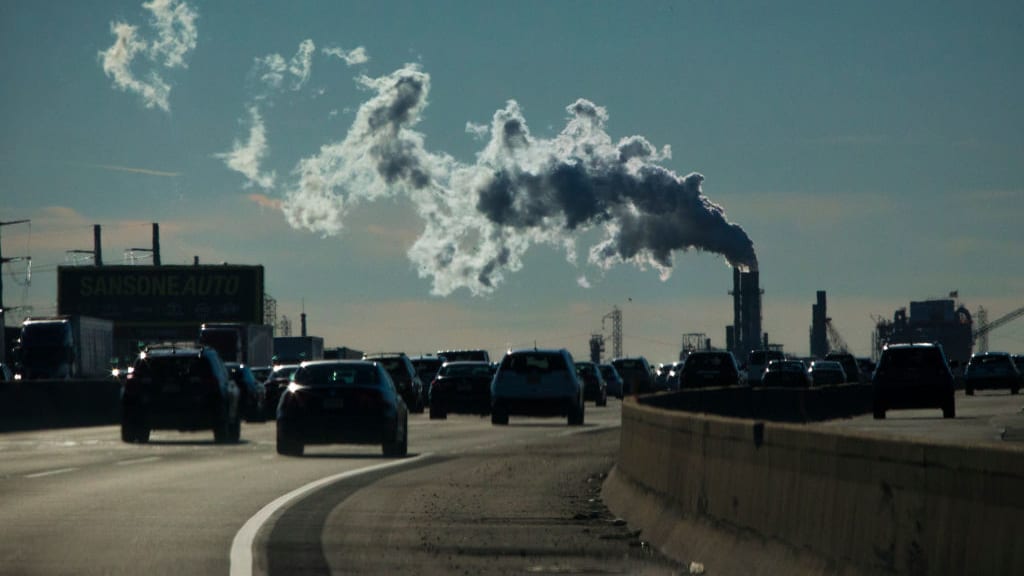By limiting EPA's power, the Supreme Court hit Biden with another climate blow


A free daily email with the biggest news stories of the day – and the best features from TheWeek.com
You are now subscribed
Your newsletter sign-up was successful
The Supreme Court's decision on Thursday to curb the Environmental Protection Agency's ability to limit greenhouse gas emissions from power plants is the latest blow to President Biden's climate agenda.
At the start of his presidency, Biden said he would cut greenhouse gas emissions in the United States in half by the end of the decade, but the tools he needs to make his climate plan work are being stripped away. "At this point, I don't see any way to hit the kind of targets they laid out," David G. Victor, an expert in climate policy at the University of California, San Diego, told The New York Times.
Biden's climate plan called for legislation to replace coal and gas-fired power plants with solar, wind, and nuclear energy, but that was cut due to opposition from Sen. Joe Manchin (D-W.Va.), who has financial ties to the coal industry. Biden also tasked the EPA with determining new, stricter limits on tailpipe emissions, but several Republican attorneys general are fighting these rules in lower courts.
The Week
Escape your echo chamber. Get the facts behind the news, plus analysis from multiple perspectives.

Sign up for The Week's Free Newsletters
From our morning news briefing to a weekly Good News Newsletter, get the best of The Week delivered directly to your inbox.
From our morning news briefing to a weekly Good News Newsletter, get the best of The Week delivered directly to your inbox.
"The judicial branch and the legislative branch are seriously hindering Joe Biden's ability to get the job done on climate," Richard Lazarus, a professor of environmental law at Harvard and member of Biden's EPA transition team, told the Times. "A lot of the optimism that everyone had a year ago is being replaced by pessimism. They're running out of options right now."
Biden on Thursday said the Supreme Court's conservative majority is siding with "special interests that have waged a long-term campaign to strip away our right to breathe clean air," and wildfires, droughts, intense storms, and extreme heat linked to climate change are "endangering our lives and livelihoods. I will take action. My administration will continue using lawful executive authority, including the EPA's legally-upheld authorities, to keep our air clean, protect public health, and tackle the climate crisis."
A free daily email with the biggest news stories of the day – and the best features from TheWeek.com
Catherine Garcia has worked as a senior writer at The Week since 2014. Her writing and reporting have appeared in Entertainment Weekly, The New York Times, Wirecutter, NBC News and "The Book of Jezebel," among others. She's a graduate of the University of Redlands and the Columbia University Graduate School of Journalism.
-
 Crisis in Cuba: a ‘golden opportunity’ for Washington?
Crisis in Cuba: a ‘golden opportunity’ for Washington?Talking Point The Trump administration is applying the pressure, and with Latin America swinging to the right, Havana is becoming more ‘politically isolated’
-
 5 thoroughly redacted cartoons about Pam Bondi protecting predators
5 thoroughly redacted cartoons about Pam Bondi protecting predatorsCartoons Artists take on the real victim, types of protection, and more
-
 Palestine Action and the trouble with defining terrorism
Palestine Action and the trouble with defining terrorismIn the Spotlight The issues with proscribing the group ‘became apparent as soon as the police began putting it into practice’
-
 Earth is rapidly approaching a ‘hothouse’ trajectory of warming
Earth is rapidly approaching a ‘hothouse’ trajectory of warmingThe explainer It may become impossible to fix
-
 At least 8 dead in California’s deadliest avalanche
At least 8 dead in California’s deadliest avalancheSpeed Read The avalanche near Lake Tahoe was the deadliest in modern California history and the worst in the US since 1981
-
 The plan to wall off the ‘Doomsday’ glacier
The plan to wall off the ‘Doomsday’ glacierUnder the Radar Massive barrier could ‘slow the rate of ice loss’ from Thwaites Glacier, whose total collapse would have devastating consequences
-
 Can the UK take any more rain?
Can the UK take any more rain?Today’s Big Question An Atlantic jet stream is ‘stuck’ over British skies, leading to ‘biblical’ downpours and more than 40 consecutive days of rain in some areas
-
 As temperatures rise, US incomes fall
As temperatures rise, US incomes fallUnder the radar Elevated temperatures are capable of affecting the entire economy
-
 The world is entering an ‘era of water bankruptcy’
The world is entering an ‘era of water bankruptcy’The explainer Water might soon be more valuable than gold
-
 Climate change could lead to a reptile ‘sexpocalypse’
Climate change could lead to a reptile ‘sexpocalypse’Under the radar The gender gap has hit the animal kingdom
-
 The former largest iceberg is turning blue. It’s a bad sign.
The former largest iceberg is turning blue. It’s a bad sign.Under the radar It is quickly melting away
